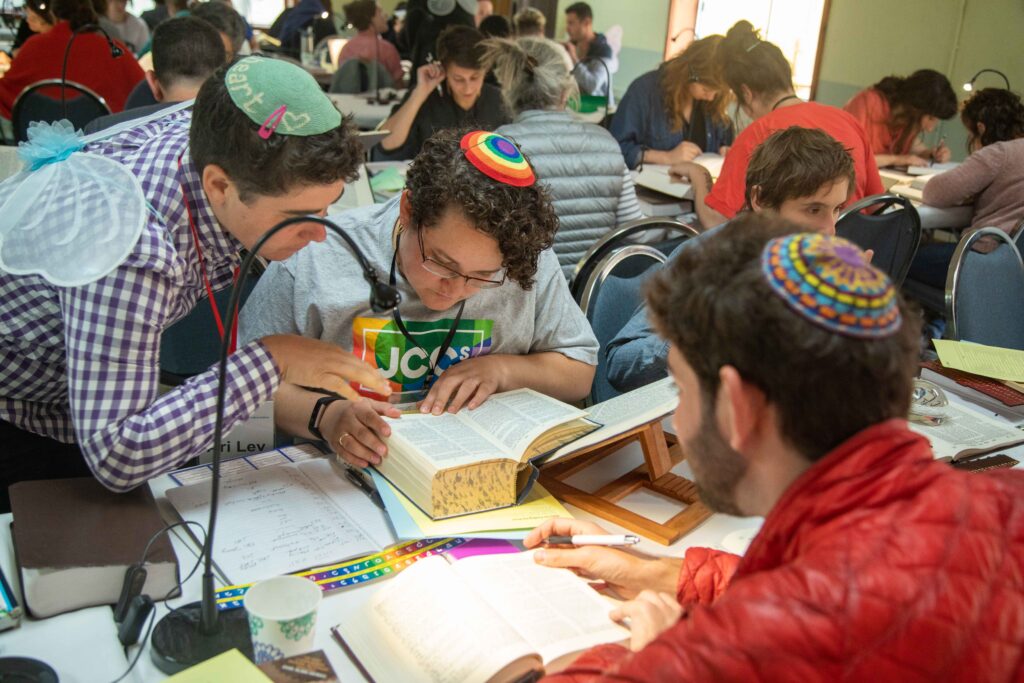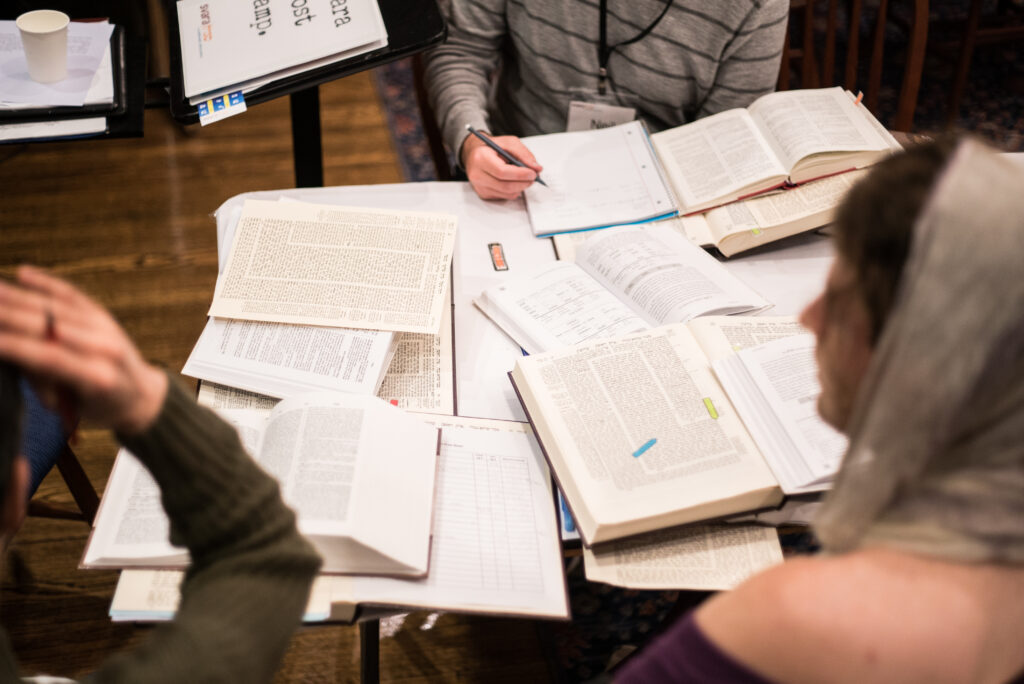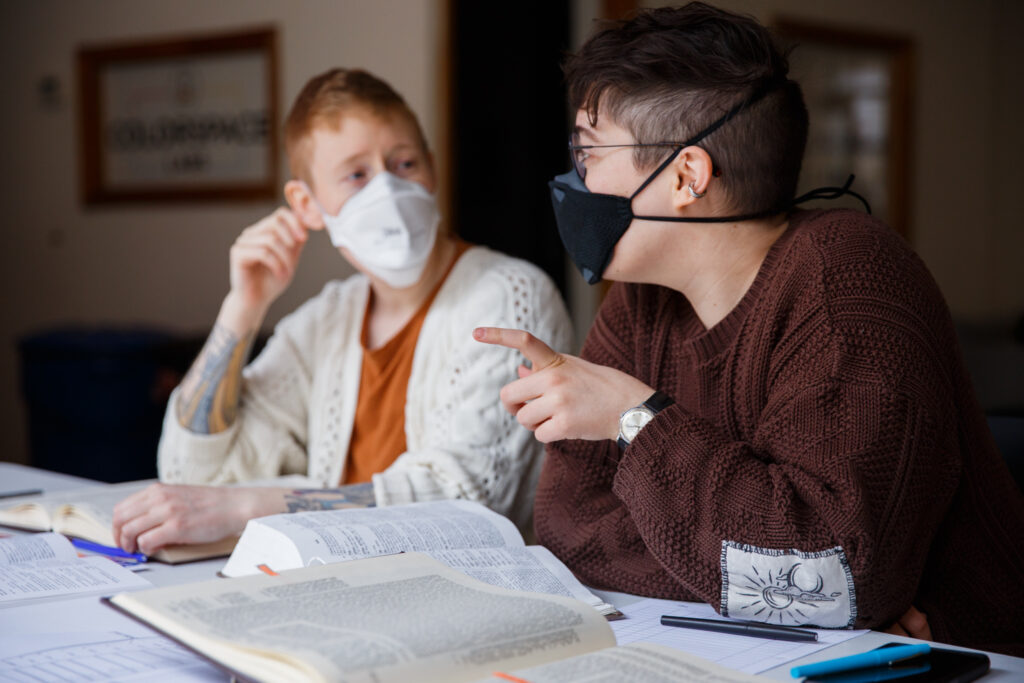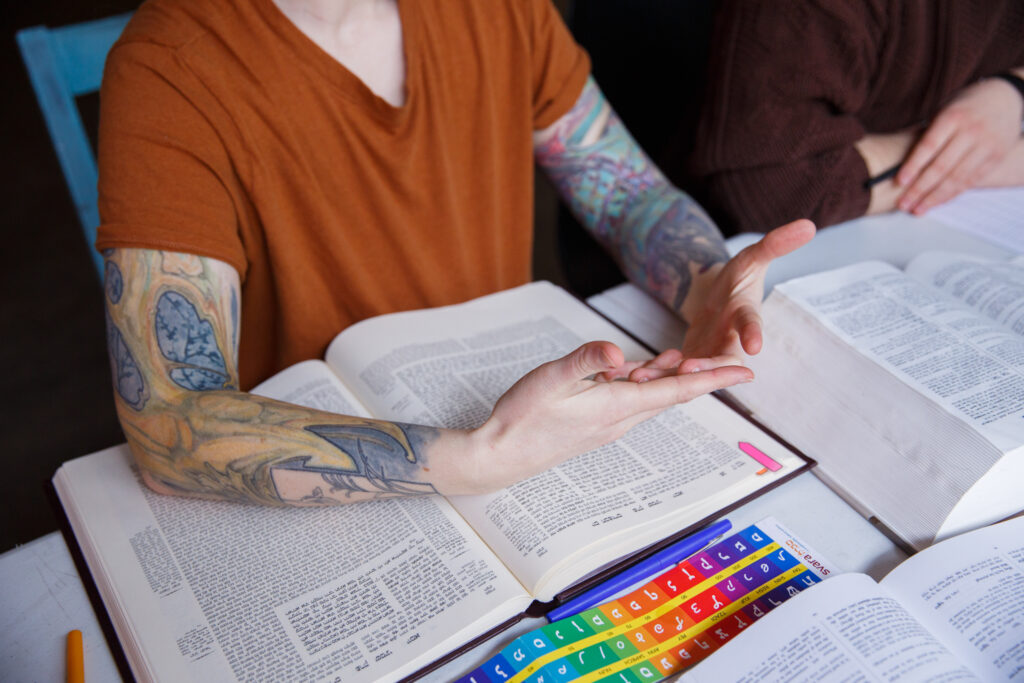When I sat down to write this piece, I grappled with whether I wanted to write something timely or not. When I looked to my fellow writers, I saw R’ Bronwen reflect beautifully just two weeks ago about what it means to study in a time of violence and death, while Kendra confronted the question of Jewish peoplehood and community, another pressing question in this moment. So as I started to write, I realized the present was inescapable: the world presses in on our Torah, and demands an answer from it, and from us.
I don’t have a good or easy synthesis here—I find myself caught between a desire to say something and not knowing what to say, to think, or to feel. I know that my feelings pale in comparison to the immense, immeasurable, unspeakable grief felt by Israelis and Palestinians who have lost their families and homes right now; by my friends who are mourning lost loved ones and friends held hostage in Gaza. And while I might not know exactly what to say or think, I have found one small piece of Torah that I am clinging to for comfort right now.
In Masechet Chagigah (5b), the Talmud brings a verse from Jeremiah, a prophecy from God to Israel: “For if you will not give heed, my innermost self must weep because of your arrogance” (Jer. 13:17). God’s “innermost self,” as Sefaria translates it, is in Hebrew במסתרים (b’mistarim), from the root ס-ת-ר, meaning secrecy, concealment, hiding. Literally, the word במסתרים is “in hiding places.” The idea of ס-ת-ר might be familiar from Purim, where God is said to be הסתר פנים (hester panim), hidden from the Jews in the Purim story, absent from the Megillah’s text.
Reading this verse, then, Rav Shmuel bar Inya in the name of Rav concludes that Mistarim is a literal place where God cries. But the Gemara objects:
ומי איכא בכיה קמיה הקדוש ברוך הוא? והאמר רב פפא: אין עציבות לפני הקדוש ברוך הוא, שנאמר: ״הוד והדר לפניו עוז וחדוה במקומו״! לא קשיא: הא בבתי גואי, הא בבתי בראי.
But is there crying before the Holy One, Blessed be He? Didn’t Rav Pappa say: There is no sadness before the Holy One, Blessed be He, as it is stated: “Honor and splendor are before Him; strength and gladness are in His place” (I Chronicles 16:27)? This is not difficult. The first statement is referring to the innermost chambers, and this statement is referring to the outer chambers.
The Gemara brings another statement from Rav Pappa which, based on another verse (which is actually included in the Pesukei D’Zimra liturgy), seems to contradict the verse from Jeremiah. For Rav Pappa, there is a theological challenge in the idea that God weeps. The Gemara responds with a very Talmudic reply: the verse from Chronicles about gladness applies in the outer chambers, the “public” parts of God’s place. Only in the innermost, hidden chambers does God weep.
But the text then continues:
ובבתי בראי לא? והא כתיב: ״ויקרא אדני ה׳ צבאות ביום ההוא לבכי ולמספד ולקרחה ולחגור שק״! שאני חרבן בית המקדש, דאפילו מלאכי שלום בכו, שנאמר: ״הן אראלם צעקו חוצה מלאכי שלום מר יבכיון״.
And doesn’t God cry in the outer chambers? Isn’t it written: “And on that day the Lord, the God of hosts, called to weeping, and to mourning, and to baldness, and to girding with sackcloth” (Isaiah 22:12)? The destruction of the Temple is different, as even the angels of peace cried, as it is stated: “Behold, their valiant ones cry without; the angels of peace weep bitterly” (Isaiah 33:7).
There are times when the grief of the world, of God and the angels, feels very present and apparent. There are times when tears are so visible and apparent that they shake the foundations of the entire world. And there are times when tears go silent. Where the world and where God seem to be callous and uncaring. When unimaginable grief becomes simply a number, just an abstraction, an imprecise count of the countless worlds being destroyed and snuffed out.
What I learned from this little piece of Torah is that such silence is an illusion. That God and the world rage and cry and shout for every innocent life lost. That our silent griefs exist as part of a much bigger spectrum of grief. That the voice of justice cries out for all to live in peace and safety. And that, amidst all the tears, there is always the promise of a better, brighter future. Because, in the very same book of Jeremiah we started with, God promises us:
For God will ransom Jacob, redeem him from one too strong for him. They shall come and shout on the heights of Zion, radiant over GOD’s bounty—over new grain and wine and oil, and over sheep and cattle. They shall fare like a watered garden, they shall never languish again. Then shall young women dance in joy, young men and old alike. I will turn their mourning to joy, I will comfort them and cheer them in their grief.
Ken, yehi ratzon. So, may it be Your will.







